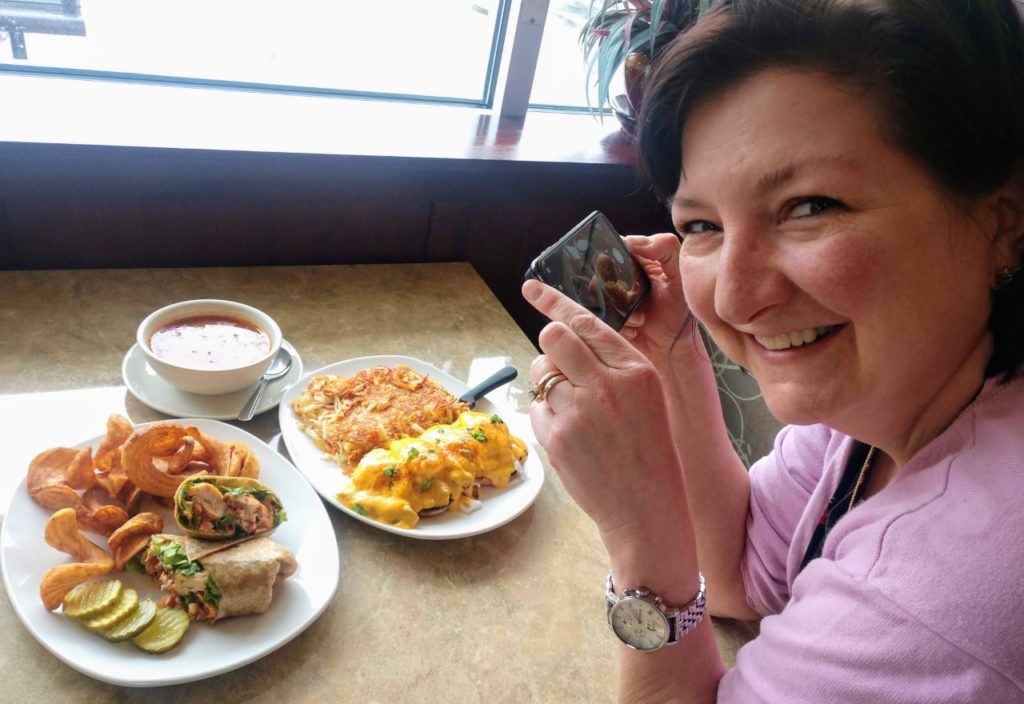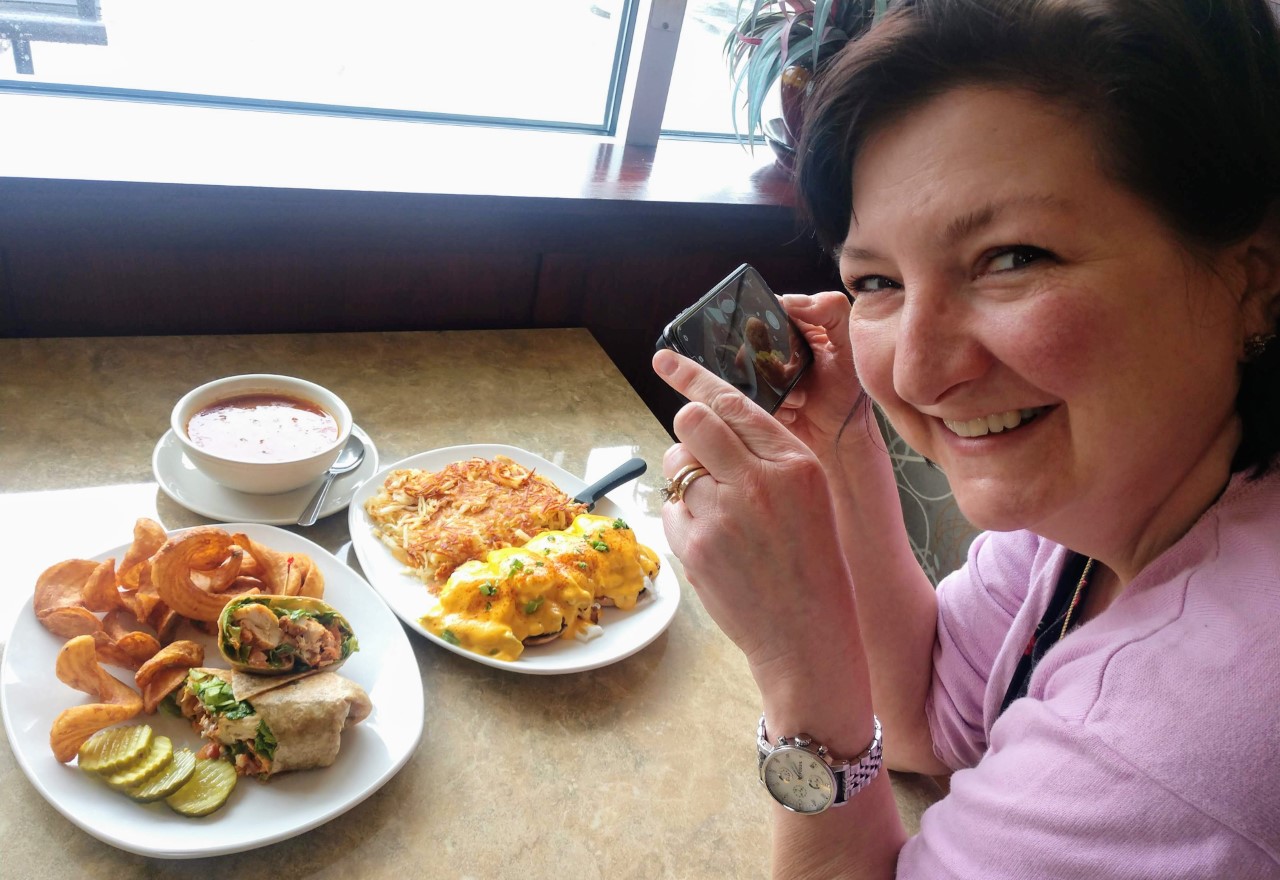For the past five years, eating out was a regular part of our family’s weekend plans.
As a freelance food writer for the Chicago Tribune’s suburban newspapers, my job was to discover interesting local restaurants and tell their stories. I didn’t have to be anonymous because I wasn’t reviewing the food. I’d contact the owners in advance, discover their stories, talk about their dishes and write about all of it. I heard plenty of stories from owners who had been washing dishes in the kitchen since they were young or had always dreamed of owning their own restaurant.
My dining profiles ran in weekly entertainment sections in some of the Tribune’s suburban papers. The money was steady, and I had fun meeting new people and writing about their livelihoods.

Then came the coronavirus.
The restaurants I wrote about were small and locally owned, the kinds of businesses that have been wrecked by stay-at-home orders and measures enacted to slow the spread of the virus. Dining rooms filled with neighbors are now empty. Cooks and waitresses are out of jobs. Various relief programs have been established to help, but many owners are not sure it will come soon enough to save their family-owned ventures.
Those of us who write about these locally owned establishments also have been impacted.
“I’ve had to pivot how I’m handling coverage of certain topics like travel and food,” said Jennifer Billock, who writes for national magazines and the suburban Chicago Daily Herald. Her regular restaurant reviews are now on hold. “It’s now more virtual experience-based, like exploring things from afar or doing virtual wine tastings and museum hours.”
Many of my fellow entertainment freelance writers have seen their assignments dry up as theaters canceled productions and restaurants have closed. Our editor told us outright that if we depended on these stories for income, that we should start looking elsewhere. I saw my assignments slashed in half and now worry about the job security of my editor. (Tribune Publishing, which owns the Chicago Tribune and its suburban newspapers, has implemented furloughs and pay cuts as print advertising has disappeared.)
Carrie Clark Steinweg, a freelancer who writes about foodie field trips for The Times of Northwest Indiana, lost those assignments. “I’m writing about virtual travel, local breweries that are open for carry-out and other topics that are relevant right now. I’ve written for other papers lately on how local restaurants are shifting what they’re doing,” she said. “I’m not going out and doing any interviews.”
Phil Potempa, who writes entertainment/food/travel stories for the Chicago Tribune suburban papers and is director of marketing for an Indiana theater, knows about challenges both as a freelancer and small business employee. “I find myself being even more careful in the words and language I use in my writing for how I convey an idea or unfolding situation, knowing very well that, by the time a story has reached the printed page of a newspaper or magazine certain aspects or events might have already changed or further key details have been unfolding during the time of submission and through the production and print and/or publish-to-online process.”
Lynn Rogers Petrak lost her contract job after 15 years as a suburban columnist for the Tribune in the latest round of coronavirus-related cuts. She said a magazine where she also freelances, suspended its upcoming issue because many local businesses, including restaurants she profiled, are on pause or closed. “I’m hopeful that this magazine will return mid-summer, because it has a strong readership base and community advertising support,” she said. “In my opinion, we’re losing local voices at a time when we need them the most. People want content from local sources, businesses want and need to connect with local customers, and local media bridge the two and tell the kind of stories that no one else can or frankly will.”
Petrak said she also is mindful of her tone in every sentence she writes. “At the same time, I don’t want content to come across as too morose or negative. It’s a balance that requires more thought and foresight,” she said. “I don’t think that’s a bad thing. It’s a reminder that every word matters, something that can be glossed over when deadlines are rushed and things are busy.”
In my case, for our safety, we freelancers were to cover restaurants remotely. We could only interview restaurant owners by phone. Instead of describing the décor, we would include delivery and takeout options. Many owners offered free delivery and other perks to customers who contacted the restaurant directly instead of a third-party service, which meant the restaurant and employees could keep money paid for delivery fees.
But not all restaurants were set up for delivery and takeout, and some owners decided to close down until they could reopen for dine-in. It’s not as easy for everyone as letting customers pick up food at the curb and some owners simply didn’t know how to remain open. Owners only had a day to prepare.
During that first week after Illinois Gov. J.B. Pritzker ordered restaurants to close, freelancers wrote about owners’ stories and how they were surviving.
Dining profiles have a positive tone by their nature and usually, owners were happy to see me, happy to talk about their ideas for new dishes. But now? One barbecue restaurant owner sold items off the walls like TVs and beer steins in order to raise cash. A family diner owner cut back his menu items and struggled with changing his 60-year-old business model overnight to accommodate carryout. He ended up shutting down for a week on the day my story appeared because he couldn’t handle the demands of takeout or offer delivery. The place has since reopened.
A sports bar owner, who had recently opened a second location, shut down both locations because he knew his menu items didn’t work with the new normal. “So many restaurants are doing curbside but that’s not us. If you’re not good at it, you’ve got to make sure you can do it,” he told me, adding he created a GoFundMe page for his laid-off employees.
He wasn’t as worried about himself, as he was of his staffers, all college students and young parents. He could get loans for his business, he said, but what could his out-of-work employees do?
It was heartbreaking to hear owners now talk about the bleak unknown. I got off the phone and cried after talking to every one of them.
I interviewed an exhausted restaurant owner in March by phone and asked her to send me a couple of photos for an upcoming profile. She asked her employees to take pictures and email them to me – but they weren’t high-res, and therefore unusable for publication. I drove 35 miles to the restaurant and employees plated three of the most popular menu items so I could take pictures. I shot photos in a silent, desolate restaurant, pushing the plates up to the windows for the best light as the whole place was mine.
I suggested to my editor that I would bring along a red-checkered tablecloth and spread it out in the back of my SUV for nice photos. She told me not to, that owners would send photos – but after decades in publishing, I knew harried restaurant owners wouldn’t know the specs of their photos that they ran on their Facebook pages, nor would that be top of mind.
I still tucked a tablecloth – and a mask – in the back. Just in case.
Shonda Talerico Dudlicek is a freelance journalist based in the Chicago suburbs who writes for the Chicago Tribune’s suburban publications and teaches journalism at Roosevelt and Dominican universities.
